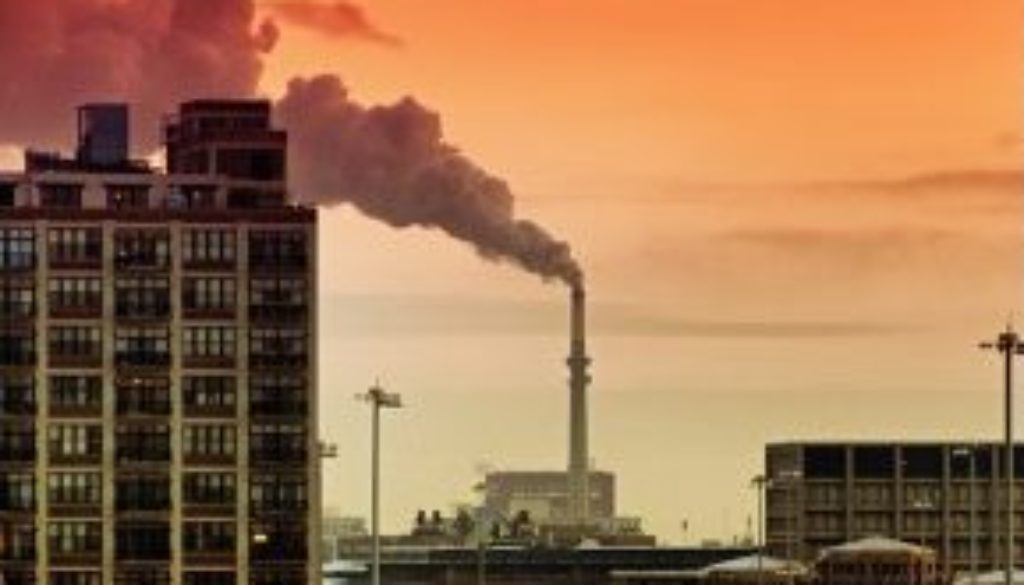David Bernhardt: Another Pro-Polluter in Charge of Our Environment
By Rhea Suh, Natural Resources Defense Council
The new deputy secretary of the Interior Department has spent most of his life attacking land, water, and wildlife on behalf of dirty energy companies.

For an insider’s look at how industry games our system of government for corporate gain, it would be hard to find a better tour guide than David Bernhardt.
A litigator and lobbyist, Bernhardt has devoted much of his career to fighting protections for lands, waters, and wildlife on behalf of mining, oil, gas, and water interests.
He’s sought to weaken safeguards for salmon and other native fish in the rich delta around San Francisco. He’s tried to delay new limits on air pollution from coal-fired power plants, allow the disposal of toxic mining waste in national forest lands, and expose more of our oceans and coasts to the dangers of offshore oil and gas drilling. He’s worked to help a company tap an aquifer beneath the fragile Mojave Desert and sell the water to cities in Southern California, a move many fear would dry up springs critical to habitat and wildlife within protected public lands. And his law firm cleared the way for additional oil and gas drilling in three Colorado towns that had tried to protect their communities from the hazard and harm of fracking.
This week, Bernhardt begins a new job in the Trump administration, as deputy secretary for the U.S. Department of the Interior. He’ll be the no. 2 steward of the nation’s wildlife and habitat conservation efforts, overseeing the protection of ocean waters and wetlands; 35,000 miles of American coastline; and national parks, wildlife refuges, and other lands that together make up one-fifth of the United States.
Wait. President Trump is handing over the future of our public lands, waters, and everything they support to a man who’s made a living attacking all that on behalf of some of the biggest industrial polluters on the planet?
Exactly.

Bernhardt, who served at the Interior under President George W. Bush, has said that, for the next year, he’ll recuse himself from issues that impact his former clients “unless I obtain a written waiver.” That’s cold comfort coming from someone whose potential conflicts of interest are so vast, the Los Angeles Times ran an infographic just to outline the basics.
Bernhardt’s appointment is the latest example of Trump’s determined effort to fill key government posts with corporate lobbyists who have represented the very industries their new jobs oversee. Two weeks ago, the New York Times and ProPublica reported that the Trump administration has hired dozens of corporate advocates to identify regulations the president can scrap. Commonsense standards we all depend on to protect our environment and health from industrial operations are being targeted by lobbyists from those very industries.
Former oil and gas lobbyists are in the U.S. Department of Energy; a former pesticides advocate is in a position to weaken protections for endangered species; a former Koch brothers lobbyist is helping the U.S. Environmental Protection Agency do away with standards to cut the fossil fuel pollution driving climate change. On it goes, with no fewer than 28 political appointees the Times and ProPublica identified who are potentially watering down or eliminating federal rules and standards that protect the public from the very industries they’ve represented in the past.
This is not about putting America first. It’s about putting special interests ahead of the public interest.
There’s nothing unusual about a new administration reviewing regulations with an eye toward updating them, or even hiring officials with expertise acquired in the private sector. What’s new is that Trump, who came to office pledging to “drain the swamp” of special interests in Washington, is instead relying on dozens of former corporate lobbyists to orchestrate an unprecedented assault on public protections that were years, and sometimes decades, in the making.
Trump, after all, has killed the Stream Protection Rule, which would have protected thousands of miles of Appalachian streams and tens of thousands of acres of forest from the ravages of mountaintop demolition by coal companies. He’s ordered the EPA to scrap the Clean Power Plan, which would clean up the dirty power plants that account for 40 percent of the U.S. carbon pollution that’s driving global climate change. He’s directed the EPA to abandon the Clean Water Rule, put in place to protect the wetlands and streams that feed drinking water sources for one in every three Americans. He’s called for weakening standards that make our cars more fuel efficient, save our families real money at the pump, and reduce air pollution. And he’s directed the Interior Department to do away with needed safeguards that protect Arctic, Pacific, and Atlantic waters and coastal communities, along with those of the eastern Gulf of Mexico, from the risks of another BP-style oil disaster at sea.
The public doesn’t support this radical attack on our environment, safety, and health. An April Quinnipiac poll found that 62 percent of Americans say Trump should not remove regulations meant to fight climate change. Fifty-one percent told CBS News in April that lifting environmental regulations was “a bad thing,” and more than 1,300 East Coast communities and businesses have weighed in to oppose offshore drilling in the Atlantic.
What’s driving Trump’s reckless rampage against responsible public oversight is not the will of the people. It’s the quest for ever-greater profits at the public’s expense for industries to whom Trump has given an outsize voice in the government.

